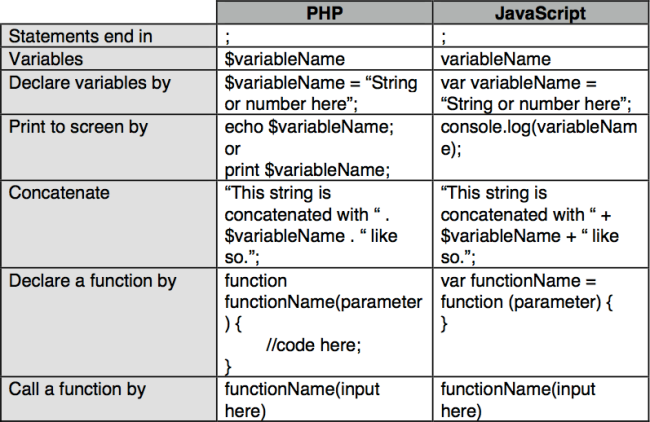I’m still plodding along in Codecademy; it’s been busy enough that while I’ve been able to set aside a bit of time daily for it, I’m still approaching the midpoint of the JavaScript modules and have yet to delve as deeply as I’d like in the book I picked up.
However, I found a local JavaScript community meeting this week, Exchange.js, and attended one of their meetings yesterday. I’ve got a way to go before I can follow much of what they’re discussing, but the group turned out to be friendly to both newbies and questions. It was soon clear that part of the point of the group is to discuss concepts and implementations that not everyone can expect to be familiar with, so they can find out more about them. I was able to have a number of good conversations once the presentations wrapped, and will be attending again next month.
The meeting drove home just how few and far between women are in programming language-based communities, though – I was one of only three attending, and one of the others was a business owner trying to get a conceptual handle on what her employees are developing. It’s stranger than I expected. I’m curious to see how the web developer community compares, once I’ve seen more corners of it; my initial impression is that women are still outnumbered, but not nearly as badly. Regardless, I’ve yet to feel out of place or unwelcome.
One immediate side-effect of the meeting is that I’ve been persuaded to sign up for an upcoming hackathon, and will be prepping a pitch for it. I’m sticking with a game concept, as I still think it’s a great, scalable, learning exercise. The concept is still rooted in the text adventure, but I’m now wanting to integrate a simplified version of the D&D 4E ruleset, pare down the party to a single-character adventure and perhaps adapt a game module for the gameplay. I’ll lay out the rough design here in a future post.
